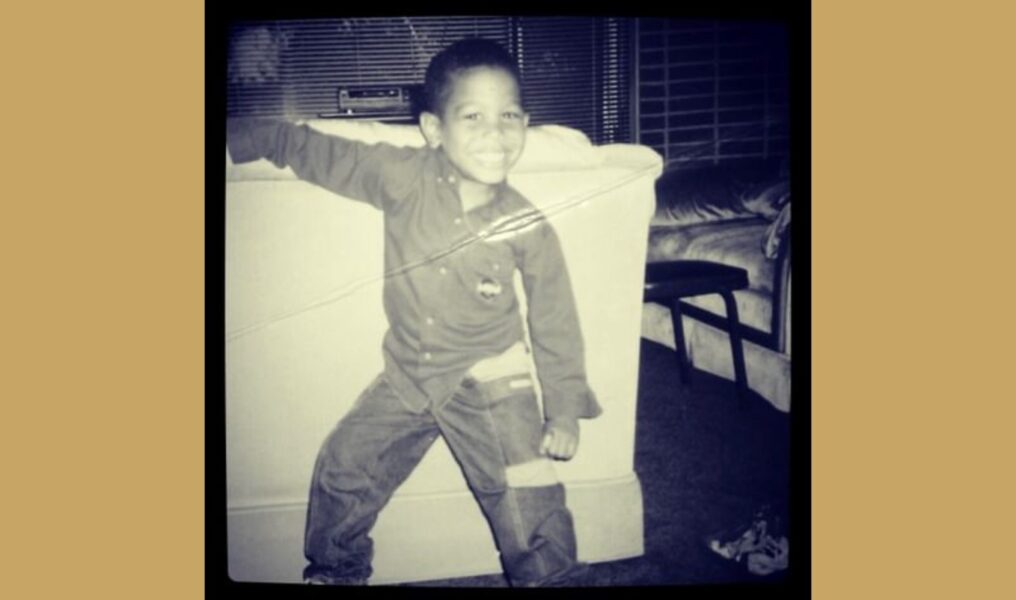How Da Brat’s Gender Remixing Brought Up Big Questions in My Black Family

Growing up in a Black middle-class household in the early ’90s, the only force more powerful than God was gender. In our childhood home, there were boys and there were girls. Boys did boy stuff, and girls did girl stuff. There was little tolerance for anything outside or in between. And unless you were the actual Holy Spirit — who was inexplicably white, male and silky-haired — the blending of the two genders was rarely welcomed. I don’t remember anyone telling me exactly how to act like a boy. There were clues and suggestions, sure, but no one came out and said, “This is what a boy does.” What I do remember is all the times I was quickly scolded for being girly or wanting to do girly things — a puppy, I was, learning from corrective action. For boys to act like girls was wrong. Really wrong. Unless, of course, you are joking. Are you joking? Good then. When I first saw Da Brat, who is headlining Hotter Than July on July 16, in her vibe-setting music video for “Funkdafied,” off her platinum album of the same name, I thought: This is easy. She isn’t even trying to act like a girl. This is obviously a joke. But the punchline never came. Just praise. I learned that everything had a gender, even music. Girls were supposed to like the girl groups and the boy bands. But boys were supposed to like the boy bands too, which was confusing to me because I only liked the girl groups, and I was repeatedly told that boys like girls. When it came to rap music, the gender roles were more straightforward: The boys rapped, and the girls were supposed to dance. Described as the female Snoop Dogg, Da Brat made me want to do both. From a mix of family, TV and movies, I slowly learned that Da Brat was allowed to remix her gender because she was a “tomboy.” And there were other tomboys, such as Queen Latifah, MC Lyte and The Lady of Rage. The term tomboy implied that what they were doing was temporary, just a phase, and all girls can be tomboys as long as they eventually come to their senses and start wearing gowns. My mind worked overtime as I wondered: If girls can be tomboys, can boys be tomgirls? I learned the answer the hard way in elementary school, then in middle school, and a little more in high school. And unlike being a tomboy, boys acting like girls in my Black family was treated as a condition that needed to be cured. Codifying it all was what I saw and heard in church, movies, TV shows and music. Men in dresses are a frequent punchline in Black culture, and women doing a man’s job was always meant to be funny because they couldn’t possibly handle it. But as a small, impressionable kid who is only trying to survive in the world, I could see through the bullshit, even though I wasn’t trying to. As the youngest, having an older sister and an older brother meant I could see the differences of these gender roles acted out in real-time. But seeing it for myself didn’t help me understand much more of anything. Despite having terrible aim, the boys were supposed to stand while using the bathroom. Sitting down was always much more comfortable. Boy clothing, covered in numbers to subliminally guide our interest into sports, were meant to be baggy and loose, which made running during a game of tag hell. High-heeled shoes? Absolutely out of the question, even though they made me tall enough to punch kids twice my size. In my eyes, Da Brat had something I didn’t: support. This made me a fan of her music, and eventually want to be her because she was able to be different and defied expectations. She has since come out as a lesbian and is now happily engaged, so looking back, it all makes sense. But for an impressionable child, she gave me the first taste of hope that you can break the rules, be who you want to be and move forward on your own terms. Da Brat was the gateway that led me to Lil’ Kim, then Missy Elliott and Madonna (yes, that Gap commercial they did together) then to Prince, and any other figure who wasn’t afraid to go against gender norms. Somewhere along the way, I found myself and I found peace. Watching them, I understood that sometimes people might need to catch up to you before they understand you — but that’s not your problem. To this day, I still stop and silently thank Da Brat for existing whenever I see her on TV or mentioned in music, because I know so many of us wouldn’t be able to hang on unless we saw how she handled being herself. In the end, I understood why both genders would like and idolize Da Brat. It was simply a matter of breaking the right rules at the right time.









